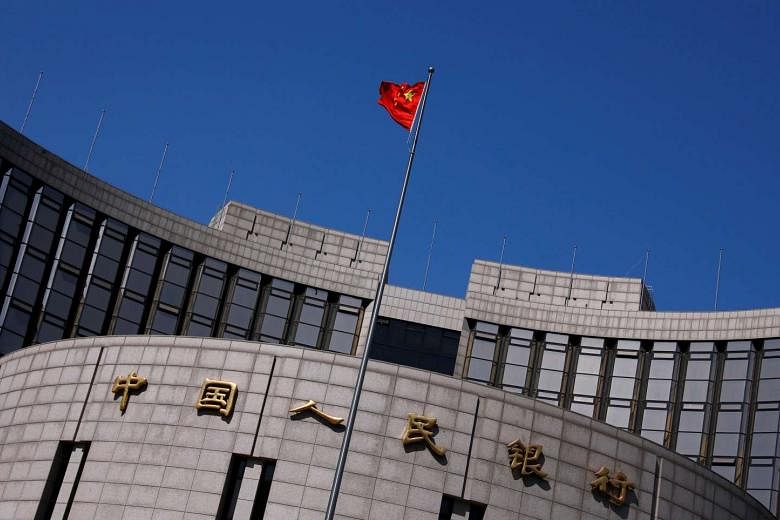BEIJING • China's central bank is going digital.
After assembling a research team in 2014, the People's Bank of China (PBOC) has done trial runs of its prototype cryptocurrency.
That is taking it a step closer to becoming one of the first major central banks to issue digital money that can be used to buy anything from noodles to a car.
For users transacting over their smartphones or laptops, a cryptocurrency backed by the PBOC probably would not seem much different to existing payment methods such as Alipay or WeChat.
But for sellers, they would get digital payments directly from the buyer, lowering transaction costs as the middleman is cut out of the process.
While building up its own capabilities, the PBOC is also increasing scrutiny of bitcoin and other private digital tenders. It does not want a bitcoin bubble to blow up.
And since currencies have historically been issued by the state, not private players, it does not want to cede the cryptocurrency space to companies it has no control over.
Chinese people have embraced online payments for just about everything.
To buy a can of Coke, thirsty commuters scan QR codes on their smartphones rather than feed coins into a vending machine.
At Chinese New Year gatherings, money is exchanged via a few presses on a smartphone instead of crisp notes handed over in red envelopes.
All of that poses a challenge to the PBOC's status as the central bank of the digital and physical realms. So if you cannot beat them, join them.
"Getting to know more precisely how much banks lend, where the money goes and the pace of credit creation is key to curbing money laundering and making monetary policy more effective," said Mr Duan Xinxing, vice-president of OKCoin, one of the country's biggest bitcoin exchanges. Issuing digital currency will make it easier for the PBOC to monitor risk in the financial system and track transactions economy-wide, he added.
OKCoin is among cryptocurrency exchanges that have recently taken steps to halt bitcoin withdrawals amid efforts to clamp down on capital outflows.
In January last year, the PBOC said it will have its own cryptocurrency "soon" but there has still been no formal start date announced. In the meantime, there has been strong advocacy from its senior officials, including deputy governor Fan Yifei.
Printing money and combating counterfeiters is expensive for a country of 1.4 billion people, especially the costs of managing circulation and transactions.
Adding digital currency to cash in circulation can improve the speed, convenience and transparency of transactions.
If the PBOC's version is widely adopted, that would challenge existing intermediaries such as banks and payment services like Alibaba affiliate Alipay and Tencent's WeChat - two leading online payment networks.
"I won't say banks and payment companies will disappear, but their role would definitely change," said Mr William Gee, a risk assurance practice partner at PwC China. "They need to find their new role in the new payment ecosystem, and we will probably see some innovative business model in this sector."
BLOOMBERG

